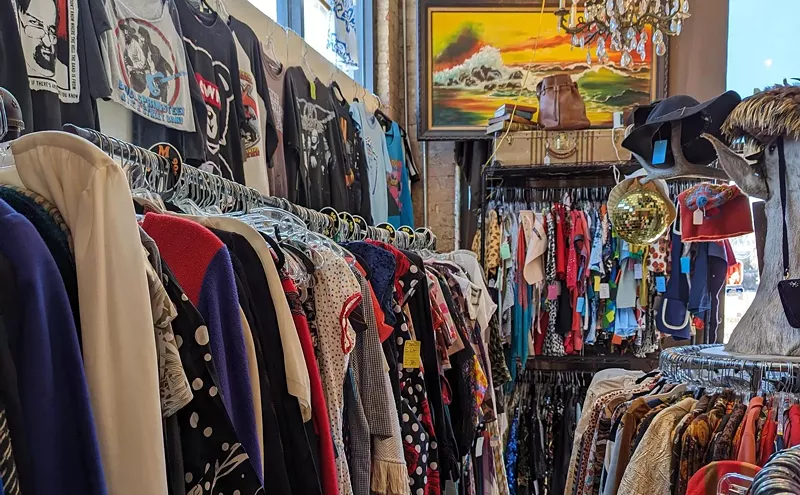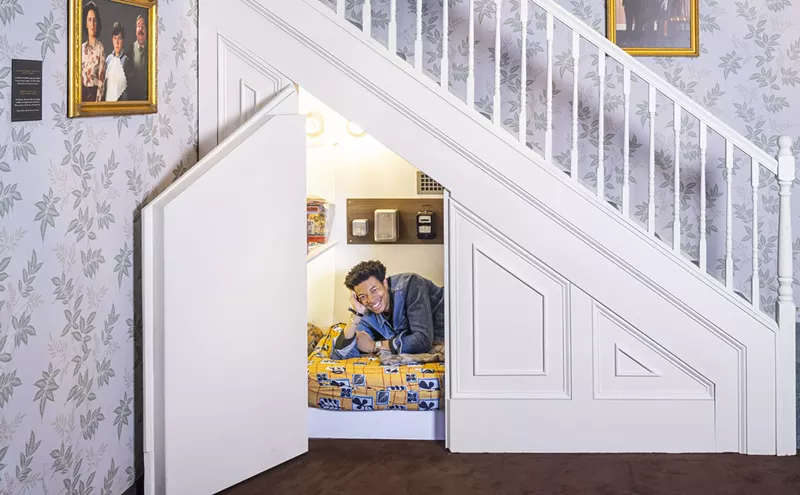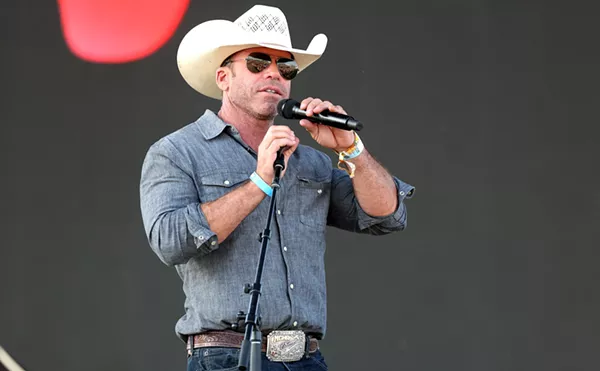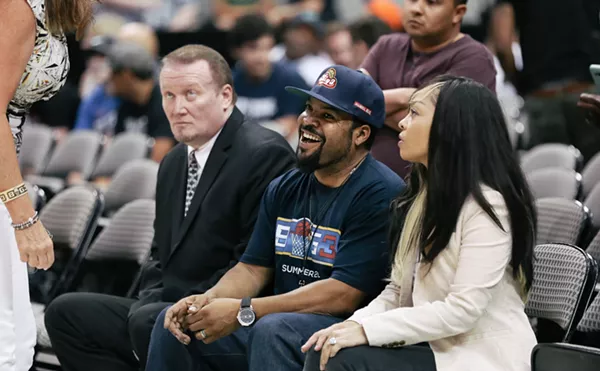Mixmaster presents "100 Creatives," in which we feature cultural entrepreneurs of Dallas in random order. Know an artistic mind who deserves a little bit of blog love? Email [email protected] with the whos and whys.
Rene Moreno was at the beginning of what promised to be a long, fruitful career as a theater actor when he fell through an unsecured window from his fifth-story apartment in Washington D.C. The 31-year-old man had been cast in his first Broadway production while still a student at Southern Methodist University and spent the following years playing American stages.
After what he now calls a "freak accident," he returned to Dallas and entered physical and psychotherapy - thinking his theater days were over. But that changed when he was asked to return to the theater as both an actor and then a director at Kitchen Dog Theater. And lucky for the Dallas theater scene, he stuck around long enough to discover a knack and a love for directing. Today he is one of the most sought-after directors in Dallas, winning countless awards and earning high praise from critics and audiences alike. When it comes to re-imagining plays in Dallas, Moreno is the man for the task, whether it's tackling Shakespeare or delving into contemporary plays like the current production of Good People at WaterTower Theatre he challenges both the actors and the limitations of the stage. And sometimes, he still takes to the boards himself.
We chatted with him for 100 Dallas Creatives. He shared insight into his career, the Dallas theater scene, and told us the story of the time someone died in the audience.
How did you get from a SMU theater student to acting on Broadway? At the time, SMU sent seniors to go up to New York every spring to meet producers, casting agents and go on auditions. While I was there, I met the casting agent of Amadeus. They were going through a change-over and after a series of four auditions, I was cast as the understudy for Mozart and I had other parts within the show. I was very lucky. I still had a couple months left at SMU when I found out I got the job. The next day, I went directly into rehearsal. The show opened a week later. Everything went really fast. My life completely changed. It was mind-blowing--very rare, very special. I realize now just how fortunate and rare that is.
In what ways did your accident change you and your career path? My parents are still in Dallas and wanted me to come back here to do my rehab. I didn't see myself continuing in theater at that time so it was a real two-year process of going through rehab and doing a lot of intense psychotherapy to get me back on my feet, so to speak. At that time, I gained a real interest in psychology and was starting to move toward that when a friend of mine came down from New York to direct a play at the Dallas Theater Center. She called me and said, "Why don't you do this?" and I was like, "I'm not acting anymore." "It's just a reading," she said. "You'll be sitting down."
I started working at the Dallas Theater Center. During those years, I began to go on stage in my chair and it was like a whole new actor because the chair is theatrical in its own way--totally different than walking. It was interesting to see how that played and god love Dallas' audiences because they were just so open to seeing a guy in a wheelchair on stage with other able-bodied actors. And yeah, at first they might of thought "well that's odd" but then "hey, cool, whatever."
How did you go from acting to directing? I always had a latent desire to direct when I was in college. In 1996, by chance, Kitchen Dog was doing a production of Miss Julie. A friend of mine had to pull out and they called me asking if I had any interest and I said absolutely. I started working around town as a director while still acting on the side. However, I wanted to be taken seriously so I started applying to graduate programs to get my MFA and then this friend - the same person who invited me to do reading that first reading at DTC - said she was taking over the directing program at SMU and asked if I wanted to be the first one through.
I still act when the role fits. A few years back, I played Richard III. I thought the chair was a perfect metaphor not only for how he felt internally but also the way he felt society saw him.
What is your approach to directing? I'm an actor's director. I'm really interested in the emotional dynamics in different relationships and how they play out on stage and with the audience. This goes back to my study in psychology. Psychology and theater walk hand-in-hand in so many ways. I'm also a playwright's director. I really feel the play as written has everything you need if you really analyze it and keep going back to script. I do a lot of table work at the top of rehearsal. I take the script and ask the actors what does that mean, how does that make you feel. They may have these thoughts in their heads but if they share them with the other people around the table in conversation, it opens up a whole new field, everyone is in the same playground.
What do you think you bring to Dallas theater? It was important for me being from Dallas, especially growing up in the '60s and '70s. I guess you could call me the poster child for everything that Dallas brought to young people as far as the arts were concerned. I remember very well getting in busses and going down to listen to the Dallas symphony play and visit all the museums in Fair Park. When I was 13, I saw a production of the New York Shakespeare Festival's Much Ado About Nothing on KERA. I watched it on TV and it totally blew my mind, it changed my life. It was important for me when I knew I was committed to living here to give back everything I had learned from my experiences outside of DFW. I wanted to offer as much of my experience to the community since I've been back.
In the 20 years you've been back, how has the theater scene changed? The theater community has just exploded. I feel like it's been a privilege to be in that, to be a part of that. If there is anything i can offer, it's continuing my work and bringing up the new artists that are coming forward because they are bringing on such new and fresh stuff I never would have thought of.
My hope for Dallas is that more and more people don't look at it as an in between, transient place going somewhere else. People should put roots down and say this is where I want to create art. I'm a firm believer in art is where you make it.
In all your years of acting and directing, is there one moment that will stick out to you forever? The first that comes to mind is when someone died in the audience. It was during the production of Amadeus. We were on stage and then all of a sudden we heard a kerfuffle in the audience. The lights went up and our stage manager actually asked the classic line: is there a doctor in the house? She asked actors to retire to the greenroom. It was a real lesson in life goes on--not in an ugly way--there was a moment of quietness and of silence. The audience was very quiet as the doctors helped escort the man and his wife out of theater. Our stage manager came back on and told the audience the show would continue where it left off. But there was something moving about that even though we were present at the passing of something.
100 Creatives: 100. Theater Mastermind Matt Posey 99. Comedy Queen Amanda Austin 98. Deep Ellum Enterpriser Brandon Castillo 97. Humanitarian Artist Willie Baronet 96. Funny Man Paul Varghese 95. Painting Provocateur Art Peña 94. Magic Man Trigg Watson 93. Enigmatic Musician George Quartz 92. Artistic Luminary Joshua King












